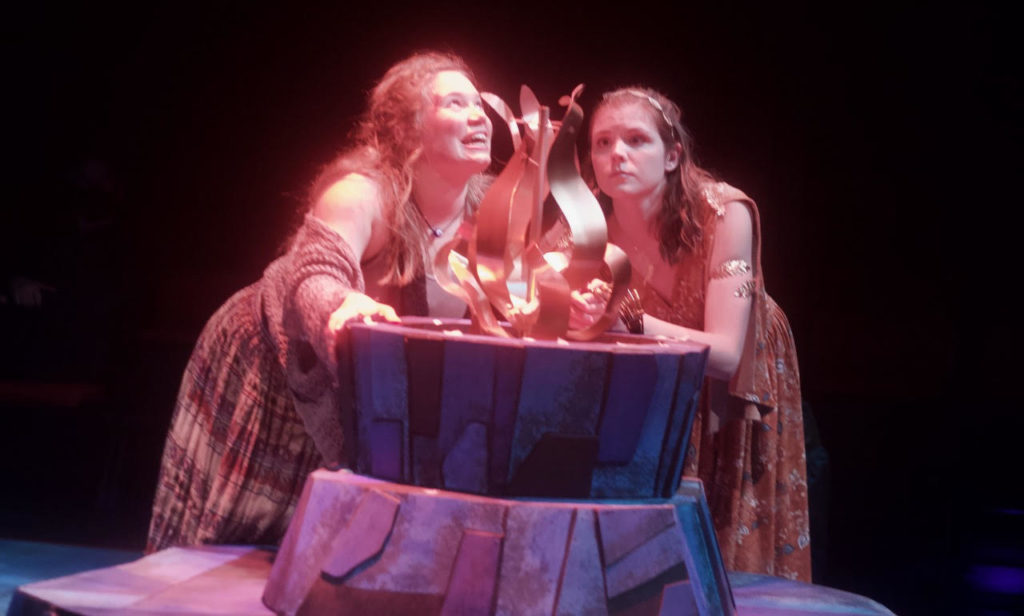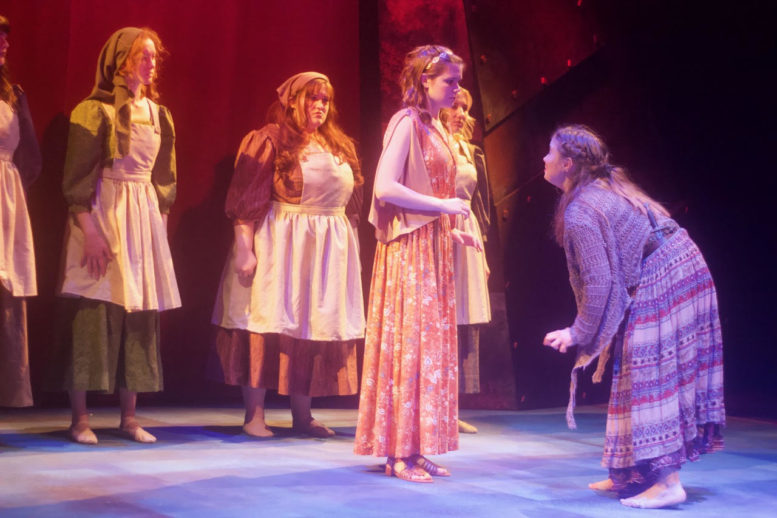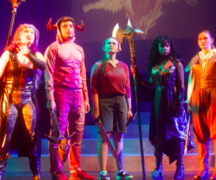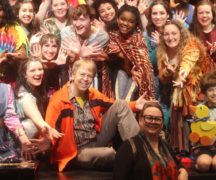By DAVID DUPONT
BG Independent News
Electra is distraught – mourning and desperate for revenge – when her namesake play begins. And she is distraught at the end having achieved what she longed for since she stumbled onto the stage, hands covered in blood.
That’s a lot of tears and raging. But Ruby Brandon, who portrays the Greek heroine, keeps the audience locked into her character as lets loose waves of emotional cataclysm. She shades and colors this verbal flood, turning it from harangue to poetry.
This is not a performance for the feint hearted. This is a performance not to be missed.
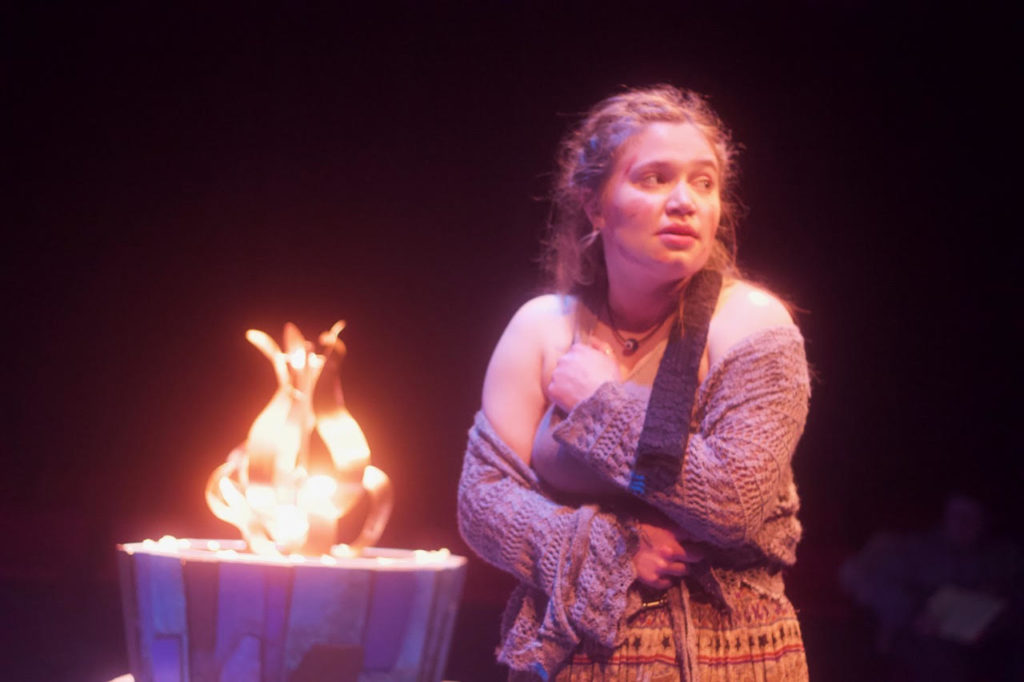
Frank McGuinness’ adaptation in contemporary language of Sophocles’ “Electra,” directed by Story Moosa, opens tonight (Feb. 16) in the Eva Marie Saint Theatre in the Wolfe Center for the Arts on the BGSU campus. Showtimes are Feb. 16, 17, 18, 23, 24, and 25 in 8 p.m. and Feb 18, 19 and 25 at 2 p.m. Click for tickets.
This is, the chorus announces, “the world of men,” that is to say a world of aggrieved and grieving women.
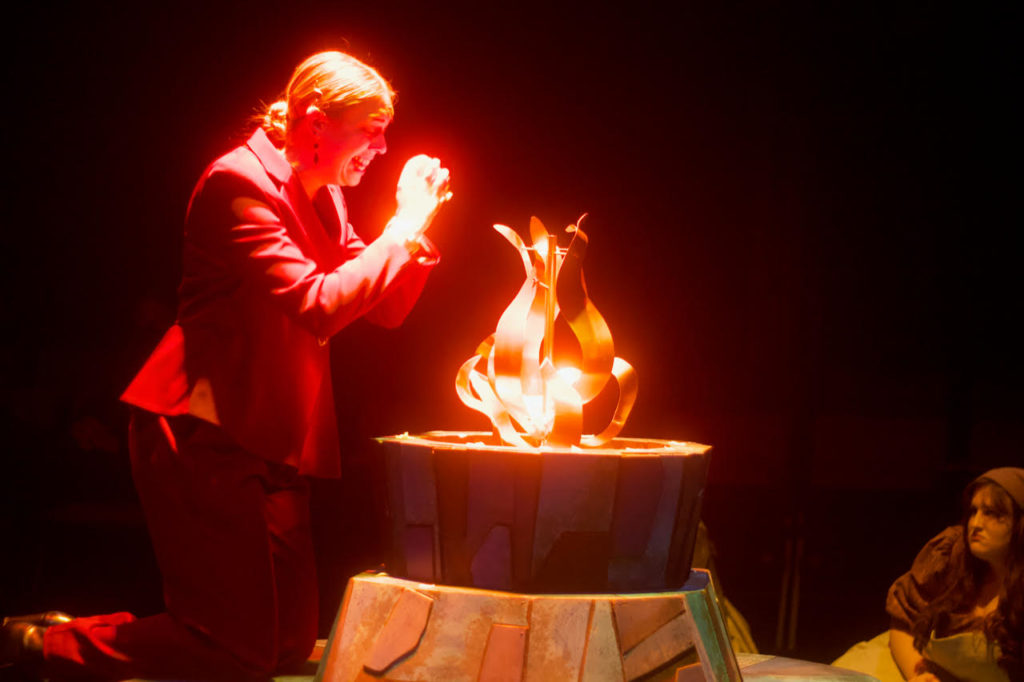
The mother, the focus of Electra’s rage, acted out of her own desire for revenge. Clytemnestra (Madison Ellis) murdered her husband Agamemnon after he sacrificed their daughter, Electra’s sister, to appease the goddess Artemis. The goddess had stilled the wind, which prevented the Greeks setting sail to Troy with the intention of taking back his brother’s wife Helen, Clytemnestra’s twin sister. These Greek stories are a tangle, spinning off other tales at ever turn.
When Agamemnon returns in triumph with a captive mistress in tow, his wife and her lover Aegisthus (Jack Freas) killed him and set Aegisthus on the throne.
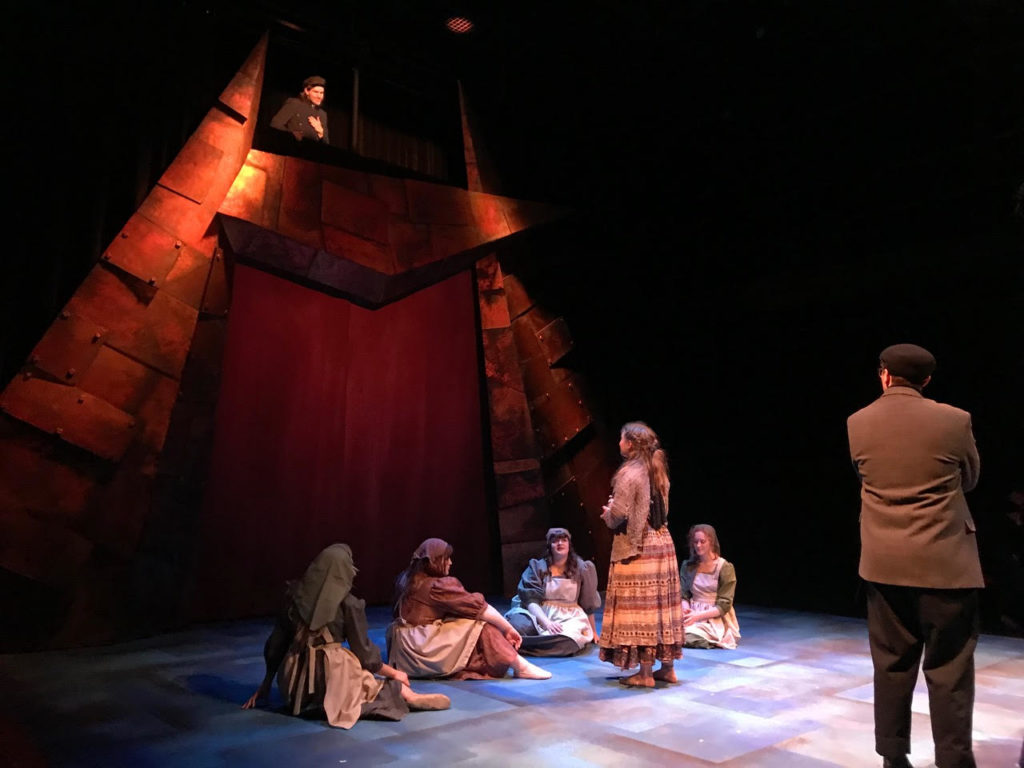
The arguments between mother and daughter are chilling in their ferocity. Ellis lets some visage of regret shine through, touches of regret that Electra distains.
Electra secreted her brother Orestes (Blaine Hudak) away. He has grown in exile, and she awaits his return so they can settle the score with the murderous usurpers.
As she rages, she is accompanied by the chorus, four women (Finleigh Klein, Mckinley Witt, Arden Moore, and Destiny Lee) who support and contradict her. Their views seem to be escaped ruminations from the echo chamber of Electra’s mind. They seem to hold her rage in check, though it burns unabated. The quartet moves as one, even when expressing divergent views, as much atmosphere as a set of characters.
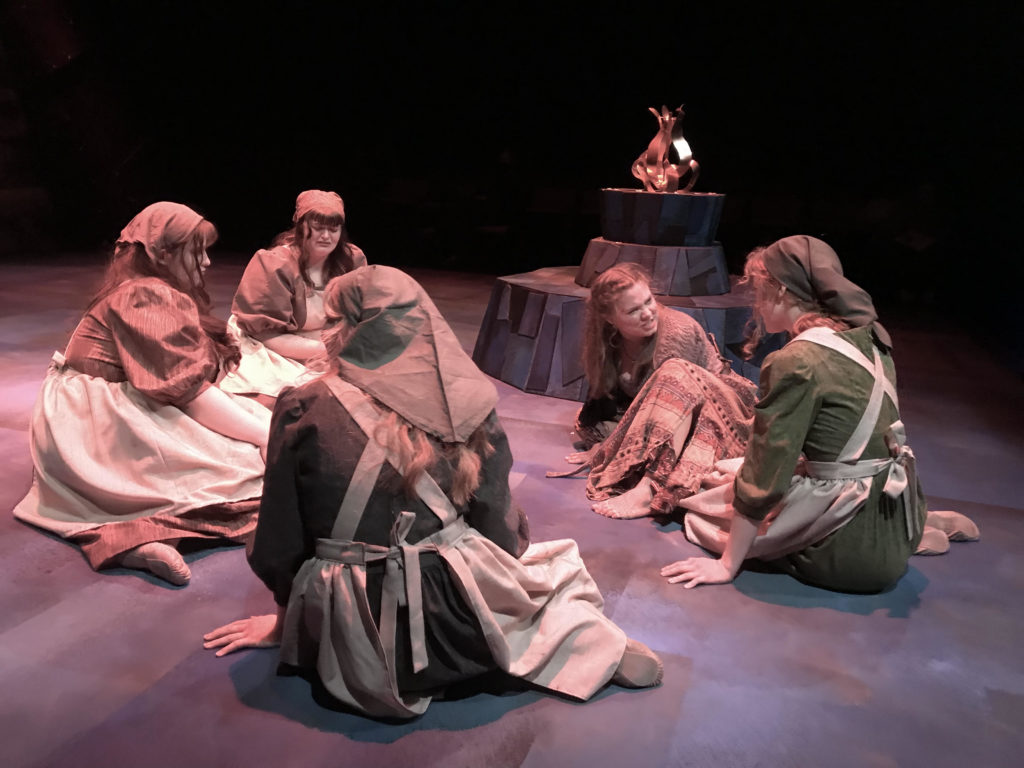
Electra’s sister Chrysothemis (Maddie Hatton) has made a kind of peace with her mother and Aegisthus. She still lives within the household unlike her sister who is an outcast. “I must obey them in everything, so I can be a free woman,” Chrysothemis says. While she agrees they are evil, she rejects her sister’s desire for revenge.
When Orestes returns, he is accompanied by the servant who carried him away as a child. The servant (Noah Archer) goes into the palace to convince them that Orestes has died.
His detailed account, an epic in itself, is heartrending as Electra believes it to be true. She collapses and grief.
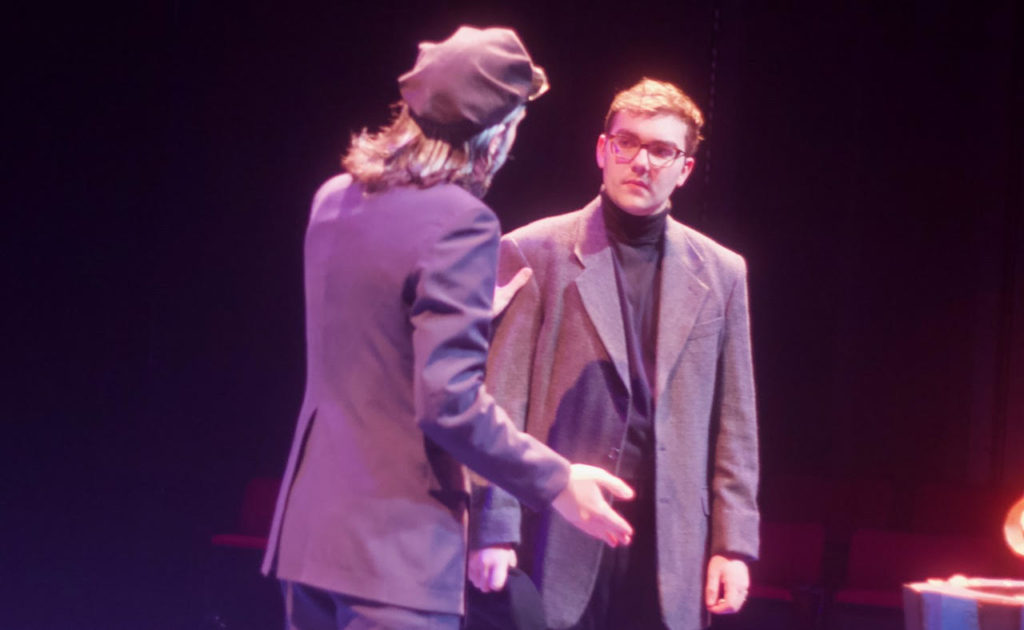
The telling of this epic lie is captivating as Archer’s character spins it out. The servant concocts the specific details of a fatal chariot race, complete with nationalities of drivers and the color of their steeds, that make it believable.
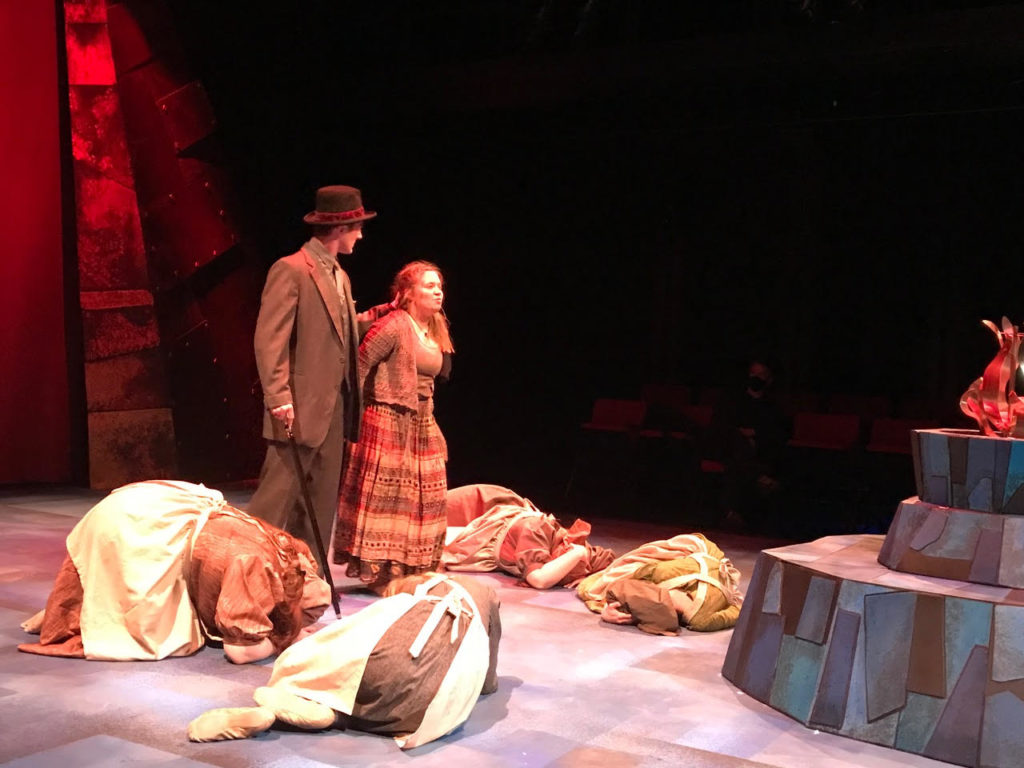
When Orestes returns this mourning turns to celebration in anticipation of the bloody task to be done.
Freas as Aegisthus arrives on stage, haughty and overbearing, unsympathetic and ready for the slaughter.
Yet once the murders, done in pantomime behind a sheet, are accomplished, we see that they bring neither joy nor resolution. Both the living and dead are victims in a cycle not likely to end.
